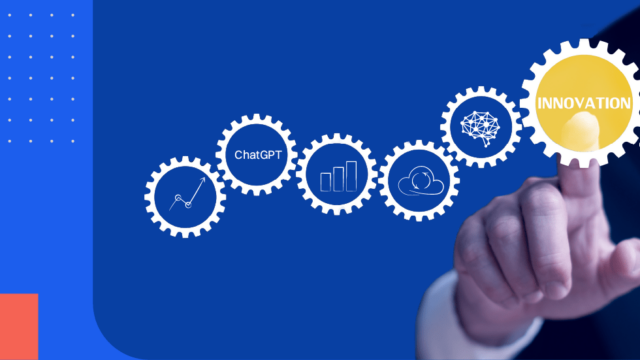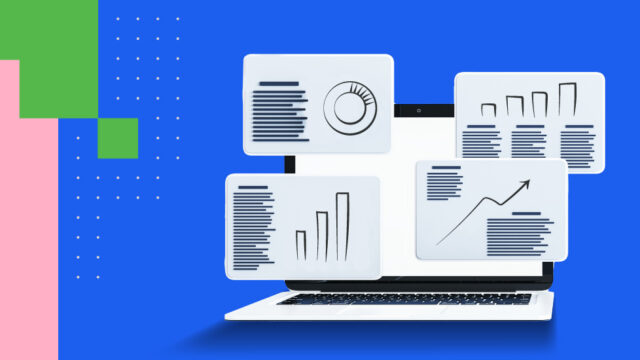
How Modern Audit Software Helps Firms Hire Top Talent
Learn how OnPoint DAS is helping firms in their search for today’s brightest talent.
There’s been an audit talent crunch going on for several years. The long COVID pandemic, with its lockdowns and office closings, worsened the shortage of skilled, experienced auditors. While many audit professionals began working from home, far fewer new applicants arrived at the offices (or checked in via Zoom) for interviews. Retirement rates began rising and many other experienced auditors either cut back on their hours or, under the pressure of more intense demands on their time, changed occupations.
As with many other things, the laws of supply and demand apply when you are hiring audit talent. According to CFODive.com, in mid-2023, more than half (56 percent) of small- and medium-sized CPA firms were hiking salaries, at an average rate of 14 percent, in view of the worsening shortage of qualified applicants. According to the same survey, hiring skilled talent had become either “challenging” or “extremely challenging” for more than 90 percent of 4,100 accountants surveyed.
Seen at one time as a secure and interesting profession, audit lost its appeal to many college-level math, finance and business majors. To overcome the shortage they saw while recruiting, audit firms began hiring talent overseas, allowing full-time work-from-home positions and offering roles to audit students before graduation.
For some firms, however, these measures aren’t solving the problem. The result is a drag on clientele numbers, audit engagements and revenue. Continually dealing with short-staff situations is forcing these firms to turn down new work and/or clients.
What’s the issue?
It seems that audit jobs have an image problem among the pool of potential recruits. Even for those inclined to audit-related courses and majors, a future career in spreadsheets and quarterly report crunch times doesn’t appeal. Investment banking, financial planning, insurance, teaching and even systems security and forensic audit for law enforcement are drawing many audit students away from CPA firms and the demands of the traditional audit profession.
The audit talent shortage has a serious downside in the form of employee churn and burnout. While audit services remain essential, businesses large and small are finding fewer professionals ready to take them on as clients. Backlogs create overtime and overtime for many audit staff means, eventually, an early retirement or a change of career.
Part of the solution may be a shift in the tools and methods of the audit trade. Accounting firms are now looking for a wider skill set from employees, including the ability to engage creatively and in-depth when it comes to business strategy. This change in focus may attract new hires by changing and enhancing their job descriptions. Accountants and auditors are repurposing themselves as something much more than number-crunchers: they’re now financial analysts, strategists and planners for their clients.
Technology is leading the way
Audit has this much going for it: For a long time, the profession has relied on computer software and other digital tools to automate its routine, data-heavy tasks. Change in the digital tools employed by the profession is ongoing and the arrival of artificial intelligence and machine learning promises continued innovation in the future.
This provides one possible solution to the audit talent crisis. If there’s one thing the younger recruiting pool now shares, it’s a thorough grasp of computers, consumer tech and the digital world. Throughout their secondary and college studies, students engage with mobile phones, laptops, smart TVs and other tech gear for social and educational purposes. Simply by virtue of their age and their generation’s experience, young audit majors emerge from college willing and eager to adopt new technology as it becomes available.
A firm that makes full use of technology that has long been familiar to them, and which can offer engagement with digital innovations and inventions, has a head start when it comes to hiring audit talent.
Of course, adoption of new technology and software often means dealing with prohibitive costs. Individual firms interested in riding the current wave in audit tech, but also reluctant to make the investment required, have been lobbying for a cooperative effort. The response was the partnership among the AICPA, CPA.com and Caseware International that resulted in the Dynamic Audit Solution (DAS).
OnPoint DAS
Artificial intelligence and machine learning, as applied to audit practice, are the differentiators for OnPoint DAS. Leading audit practitioners have collaborated in the creation of this product by Caseware in partnership with CPA.com and the AICPA.
OnPoint DAS is a fully integrated audit software package built on the Caseware Cloud platform. It relies on a new audit methodology that features AI-powered analytics, data-driven analysis and real-time collaboration with clients.
This software breaks new ground in the field of AI and audit data. As more information interfaces with DAS, users can draw on the app’s valuable embedded store of audit knowledge. As the audit progresses, the software poses questions and suggests procedures to the auditor based on the information provided.
Delivering data insights
Questions raised by a mass of raw data can be simple or complex. Are sales numbers inconsistent in a certain geographical region? Are tax rates not agreeing with those provided in a previous year or quarter? These two inconsistencies, and many others, may be related. A human auditor may provide that insight or may overlook it. DAS, though, is designed to find the most obscure links, point them out and give the auditor and client confidence that all relevant issues are being addressed.
Analytics also identify risks to the company, providing suggested responses and procedures as the engagement continues. This allows auditors to deliver not just the raw numbers but also valuable insights into the overall financial state, current and trending, of the business. The result is more valuable financial analysis delivered throughout the audit engagement.
AI and machine learning, which power these embedded analytics, bring a more insightful evaluation of risks to the company. Using DAS, the auditor can deliver suggested responses and changes to mitigate these risks and improve the company’s performance.
In short, OnPoint DAS is a reinvention of the traditional audit workflow. This software moves away from checklists and rigid procedures to offer guidance to the auditor on risks particular and relevant to the client. The emphasis is on an analysis of the data to assess these risks and when sufficient data is available, machine learning and “big data” tools are used to identify patterns in the numbers that may not be obvious to the auditor.
Better client communication
Keeping in close communication with the client is essential to a successful audit. DAS offers a client communication module that allows for easy and efficient exchanges with clients and among all members of the audit team. With access to Caseware Cloud, document exchanges and requests can also be seamlessly handled from a central point.
This integration of different but essential audit features within OnPoint DAS is one of the product’s key advantages. Communicating and exchanging within a central module means auditors no longer have to worry about the compatibility of different software brands and versions. This can be a significant selling point to prospective hires who do not want to be bogged down with tedious technology problems.
Automated statements
DAS also offers automatic data mapping, which easily routes data to financial statement drafts. This lessens the need for double-checking for inaccuracies, traditionally one of the more burdensome tasks at quarterly crunch time. Real-time updates can also be delivered to clients. The app even provides smart review tools and checklists, standardized client letters and notifications of any changes made to financial statements.
The result of these tools and features is a more interesting and creative approach to the standard financial audit and an appealing use of technology that makes the auditor an insightful advisor, rather than an interchangeable number-cruncher.
Another advantage of DAS is the integration of the entire suite of audit tools. This “smart app” means buying and handling different products for different audit tasks is no longer necessary. Integration brings greater ease and efficiency to the process, lessening the stress on both auditor and client.
These various smart app features place OnPoint DAS at the forefront of audit software and technology. This allows for more in-depth analysis and strategizing on the part of the audit team, making their work more valuable to the client than the bean-counters of the past.
The appeal of OnPoint DAS also extends to new hires for audit firms. Convincing talented graduates that audit now offers new roles as business planners and strategizers may draw a bigger pool of applicants. In turn, this will help relieve the audit talent crisis that’s been an issue in the industry.
A global audit solutions brand
With users in more than 130 countries, Caseware has established itself as a global audit software and solutions brand. The company has been in business for more than 35 years and now offers more than 250 apps and templates, all fully compliant with varying local audit standards.
Caseware emphasizes an “insight-driven” practice that delivers valuable business strategies, not just raw numbers and data, to its customers. Other products delivered by the company include tax processes and collaboration, a form of practice management that simplifies administrative work for its clients. To learn more about DAS, contact Caseware for information and to arrange a live demonstration.








